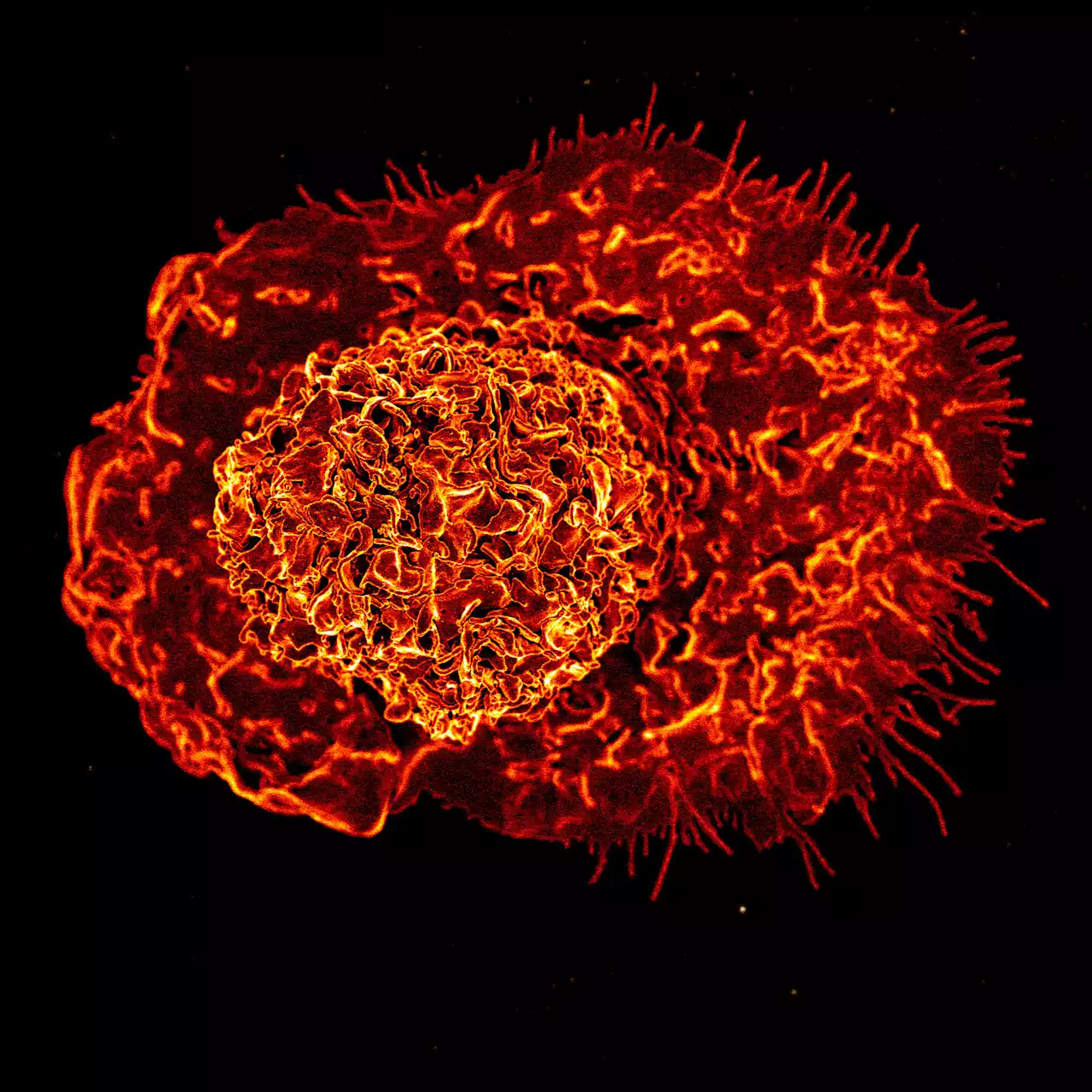Severe COVID-19 may cause long-lasting alterations to the innate immune system, the first line of defense against pathogens, according to a small study funded by the National Institute of Allergy and Infectious Diseases, part of the National Institutes of Health.
Reviewed by Lily Ramsey, LLMAug 18 2023 These changes may help explain why the disease can damage so many different organs and why some people with long COVID have high levels of inflammation throughout the body. The findings were published online today in the journal Cell.
Researchers led by Steven Z. Josefowicz, Ph.D., of Weill Cornell Medicine in New York City examined immune cells and molecules in blood samples from 38 people recovering from severe COVID-19 and other severe illnesses, as well as from 19 healthy people. Notably, the researchers established a new technique for collecting, concentrating and characterizing very rare blood-forming stem cells that circulate in the blood, eliminating the need to extract such cells from bone marrow.
In these rare stem cells-;the parents of immune-system cells-;taken from people recovering from COVID-19, the scientists identified changes in the instructions for which genes got turned on or off. These changes were passed down to daughter cells, leading them to boost production of immune cells called monocytes.
The investigators suspected that an inflammatory cytokine called IL-6 might play role in establishing the changes in gene-expression instructions. They tested their hypothesis both in mice with COVID-19-like disease and in people with COVID-19. In these experiments, some of the subjects received antibodies at the early stage of illness that prevented IL-6 from binding to cells.
Related StoriesThese findings suggest that SARS-CoV-2 can cause changes in gene expression that ultimately boost the production of inflammatory cytokines, and one type of those cytokines perpetuates the process by inducing these changes in stem cells even after the illness is over. Additionally, the findings suggest that early-acting IL-6 is likely a major driver of long-term inflammation in people with severe COVID-19.
Belgique Dernières Nouvelles, Belgique Actualités
Similar News:Vous pouvez également lire des articles d'actualité similaires à celui-ci que nous avons collectés auprès d'autres sources d'information.
 Potential of COVID-19 convalescent plasma for future monoclonal antibodies against severe SARS-CoV-2 inflammationResearchers report that convalescent plasma treatment is most effective in treating hospitalized COVID-19 patients.
Potential of COVID-19 convalescent plasma for future monoclonal antibodies against severe SARS-CoV-2 inflammationResearchers report that convalescent plasma treatment is most effective in treating hospitalized COVID-19 patients.
Lire la suite »
 Severe COVID-19 may lead to long-term innate immune system changesSevere COVID-19 may cause long-lasting alterations to the innate immune system, the first line of defense against pathogens, according to a small study. These changes may help explain why the disease can damage so many different organs and why some people with long COVID have high levels of inflammation throughout the body. The findings were published online today in the journal Cell.
Severe COVID-19 may lead to long-term innate immune system changesSevere COVID-19 may cause long-lasting alterations to the innate immune system, the first line of defense against pathogens, according to a small study. These changes may help explain why the disease can damage so many different organs and why some people with long COVID have high levels of inflammation throughout the body. The findings were published online today in the journal Cell.
Lire la suite »
 Isolated severe thunderstorms possible on Friday, but drier weekend is on deckThursday brings us another cloudy and cooler day but we increase our rain chance a bit. Some scattered showers and storms develop in the afternoon in western New England, but there will be many hours of dry weather too. Some sun breaks out between the stubborn clouds and highs climb to the mid and upper 70s. Across the South Coast, Cape and…
Isolated severe thunderstorms possible on Friday, but drier weekend is on deckThursday brings us another cloudy and cooler day but we increase our rain chance a bit. Some scattered showers and storms develop in the afternoon in western New England, but there will be many hours of dry weather too. Some sun breaks out between the stubborn clouds and highs climb to the mid and upper 70s. Across the South Coast, Cape and…
Lire la suite »
 Line of thunderstorms brings chance for severe weather FridayHumidity continues to increase before a cold front passes on Friday. Light showers and rain will be scattered at daybreak. Then a narrow, but nasty line of thunderstorms oriented from north to south will likely bring downpours throughout central Massachusetts and southeastern New England between 11a.m. and 3 p.m. Because of the pace at which the front is moving, the…
Line of thunderstorms brings chance for severe weather FridayHumidity continues to increase before a cold front passes on Friday. Light showers and rain will be scattered at daybreak. Then a narrow, but nasty line of thunderstorms oriented from north to south will likely bring downpours throughout central Massachusetts and southeastern New England between 11a.m. and 3 p.m. Because of the pace at which the front is moving, the…
Lire la suite »
 Growing evidence of severe silicosis outbreaks among engineered stone workersEngineered stone has become a popular alternative to natural stone and synthetic countertops throughout the U.S. However, workers who cut, polish, and install engineered stone countertops have developed severe silicosis, a progressive, irreversible, and preventable chronic lung disease caused by inhaling crystalline silica.
Growing evidence of severe silicosis outbreaks among engineered stone workersEngineered stone has become a popular alternative to natural stone and synthetic countertops throughout the U.S. However, workers who cut, polish, and install engineered stone countertops have developed severe silicosis, a progressive, irreversible, and preventable chronic lung disease caused by inhaling crystalline silica.
Lire la suite »
